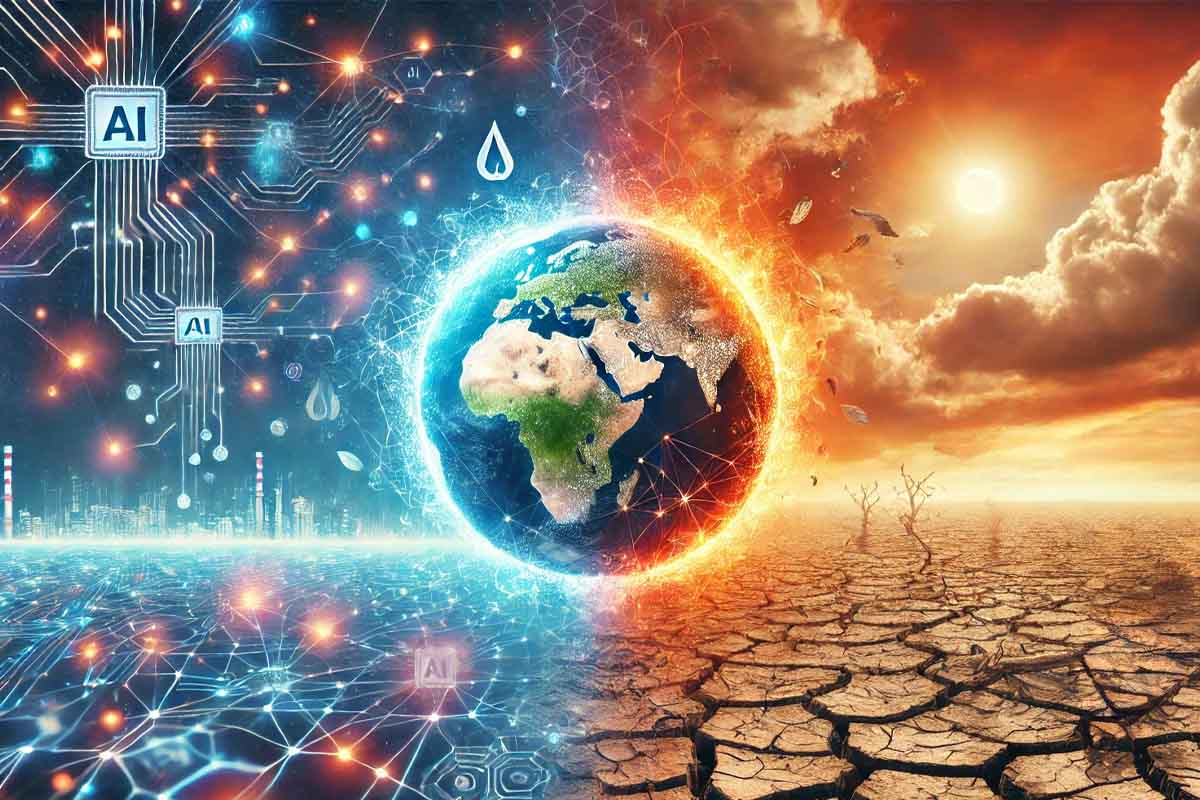
The Surging Power Demand of Artificial Intelligence
The rapid rise of artificial intelligence has brought with it a hidden cost: a growing demand for electricity that threatens to strain the nation’s power grid. The rising presence of AI poses a dilemma for specialists who are striving to address the growing energy demand while also seeking solutions.
According to recent projections, artificial intelligence data centers in the United States are expected to consume six percent of the country’s total electricity by 2026, a significant increase from the four percent consumed in 2022. The increasing demand, for electricity in these facilities is mainly fueled by the volume of AI requests they process daily. For instance a single question posed to an used AI chatbot requires much energy, as lighting a lightbulb for 20 minutes.
The Uncertain Future of AI’s Power Consumption
Gregory Nemet, a professor at the La Follette School of Public Affairs who specializes in sustainable energy research, suggests that the future of artificial intelligence‘s power consumption remains uncertain. “We don’t know what’s going to happen with AI,” he explains. “There’s big growth now, but there could come a point where it slows down because we’re not really getting any more benefits out of it.”
Despite this uncertainty, Nemet remains optimistic about the U.S.’s ability to meet the increasing demand for electricity driven by artificial intelligence and the adoption of electric vehicles. He highlights the benefit of AIs adaptability to any location suggesting that the proximity of data centers to renewable energy sources such, as wind and solar farms could be advantageous.

The Push for Renewable Energy in AI
Some of the leading companies in artificial intelligence development, such as Microsoft, Apple, and Google, have already begun investing in renewable energy as part of their carbon emissions-reduction strategies. Some parts of the country may not be as ready to handle the increasing need, for electricity driven by AI technology.
Public utilities in states like Georgia, Virginia, Washington, and Texas are struggling to keep up with the increased power consumption of artificial intelligence data centers. Some individuals are opting for fuels such, as gas as a temporary solution despite contradicting initiatives to lower carbon emissions and necessitating substantial investments in infrastructure.

The Paradox of AI Efficiency
Matt Sinclair, an assistant professor in the Department of Computer Sciences at the University of Wisconsin-Madison, highlights the paradoxical nature of improving artificial intelligence efficiency. Jevons Paradox, a known concept proposes that improving the efficiency of a resource may actually result in an increase, in its utilization rather, than a decrease.
“Making AI more efficient, making it consume less energy, paradoxically increases the overall energy consumption,” Sinclair explains. “Because now you can use it in ways you couldn’t before. In turn, this enables more use of AI, increasing overall energy consumption.”

Collaboration and Innovation in Balancing AI’s Power Needs
Finding a balance between the benefits of artificial intelligence and its growing power requirements will likely require collaboration among diverse groups, including utilities, computer scientists, and government regulators. Professor Karu Sankaralingam, from the Computer Sciences Department is actively addressing the issue of efficiency by creating principles, for power efficiency that can be used in AI applications.
Sankaralingam’s approach, called efficient generalization, aims to push the boundaries of efficiency without sacrificing the adaptability of artificial intelligence systems. In tests conducted in his laboratory positive advancements have been. He is optimistic that individuals will devise more energy efficient solutions as they become more cognizant of the problem.

Navigating the Future of AI and Energy
As artificial intelligence continues to advance and permeate various aspects of our lives, the challenge of meeting its growing power needs will remain a critical issue. Harnessing the possibilities of intelligence while also addressing the need, for sustainable energy solutions will demand continuous exploration, creativity and cooperation among various stakeholders in different fields.
By pursuing renewable energy sources, developing more efficient hardware and software, and implementing forward-thinking policies, we can work towards a future in which the transformative power of artificial intelligence is harnessed in a manner that is both sustainable and beneficial to society as a whole.



